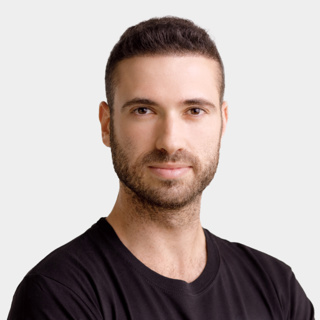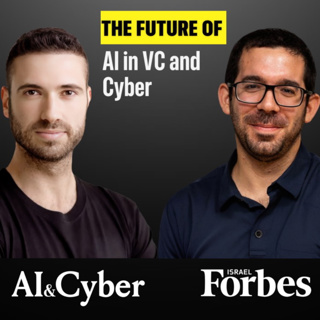
Ep39: Mikey Fischer | PhD student at Stanford University
Mikey Fischer is a PhD student at Stanford University in Computer Science studying Artificial Intelligence and Natural Language Processing, where he is developing a system that translates natural language into code. He was the head TA for “Regulating AI”, a class taught in the law school by a California Supreme Court Justice. Mikey is currently writing a book, “Regulating AI”, exploring the intersection of AI and Law.
21 Aug 202020min

Ep40: Liat Aaronson | Co-Founder, Horizen Labs, Prev. Exec Director of Zell (IDC)
Liat is the co-founder of Horizen Labs, helping create tools for businesses to deploy blockchain applications. Previously she served as the COO of Selina Hospitality, and was an Investment Partner at Marker LLC. Liat was the Executive Director of the Zell Entrepreneurship Program at the IDC, allowing undergraduates to experience entrepreneurship hands-on.
21 Aug 202021min

Ep37: Maital Rasmussen | Head of Marketing | DIS at Roche
Maital is shaping the health-tech industry and driving the commercialization of advanced technologies that enable personalized care as head of global marketing for Roche Diagnostics Information Solutions. Previously, Maital held numerous senior leadership roles across industries in start-ups and Fortune 100 companies. She served as vice president at JPMorgan and led the vision and marketing strategy for Oracle healthcare solutions.
21 Aug 202020min

Ep31: Yair Vardi | Co-Founder and Partner of Fusion LA
Yair Vardi is a founding partner of Fusion LA - a venture-backed accelerator for Israeli start-ups in the US. To date, they invested in 43 startups, where 70% of their alumni have continued to raise $500K-$5M. Vardi completed military service as an officer in Israel's Intelligence Corps, Unit 8200. In 2018, Forbes Magazine named Vardi to its annual "30 Under 30" Israel list.
20 Aug 202021min

Ep33: Stuart Friedman | CEO of Stu Friedman Associates
Stuart is an industry recognized coach and trainer with an extraordinary understanding of how overcoming limiting beliefs and blind spots leads to stronger, more aligned relationships in today’s multicultural workplace. His clients include Genentech, Intel, Apple, Microsoft, Sony, and Nissan. Stuart is a contributing author to Fortune.com, a TEDx speaker, and interviewed by Forbes, Bloomberg BusinessWeek, BBC and WCBS NewsRadio.
20 Aug 202021min

Ep35: Ivan Lee | CEO of Datasaur.ai
Ivan serves as the Founder and CEO of Datasaur.ai. Datasaur builds data labeling software for ML teams working on NLP. After graduating from Stanford with a Computer Science degree, Ivan has spent his career working in the machine learning, search and gaming industries. He's driven by building cohesive teams and crafting technological breakthroughs into meaningful user experiences.
20 Aug 202018min

Ep32: Neta Rivkin | Olympian (3 times), World Championship Medal
Neta is a 3 time Olympian competitor in rhythmic gymnastics and the first Israeli gymnast in history to win a medal in the world championship. She took part in seven World Championships, participating in 16 finals, and in 11 European Championships, reaching 14 finals. She has multiple medals from World Cups and the Grand Prix series. In her competing years, she would spend 270 hours a month in training to prepare for a 90-second performance.
20 Aug 202026min

Ep26: Tatyana Kanzaveli | Founder and CEO of Open Health Network
Tatyana is known for guiding Fortune 500 and startup companies through business challenges. Today she is the founder and CEO of Open Health Network, a mentor at 500Startups and Richard Branson Entrepreneurs Centre and serves on boards for private companies. She also is the organizer of highly notable TEDxBayArea conferences.
19 Aug 202019min






















